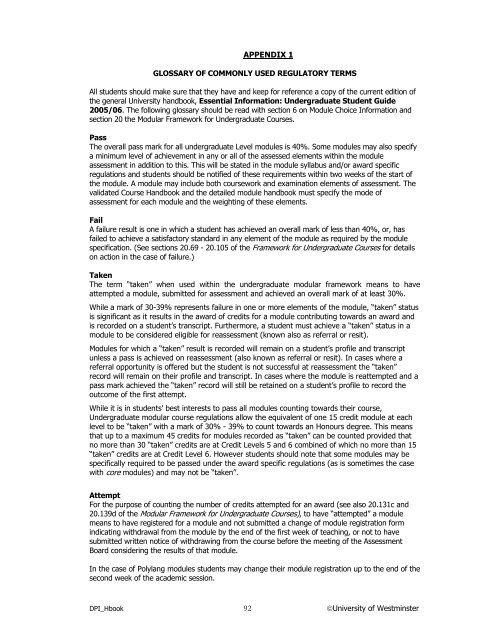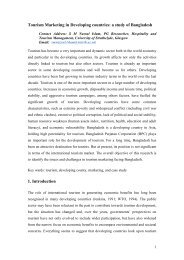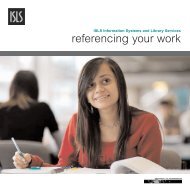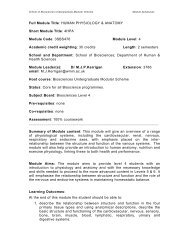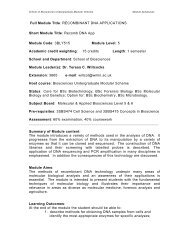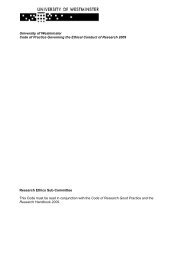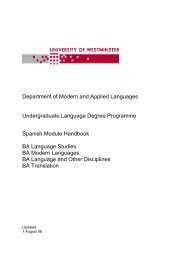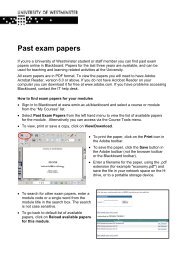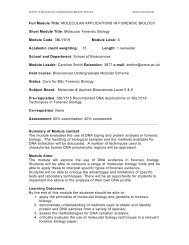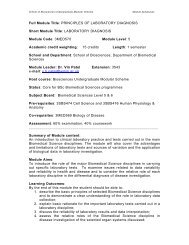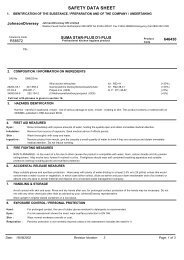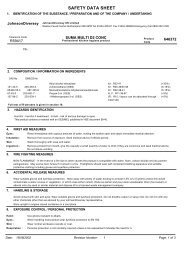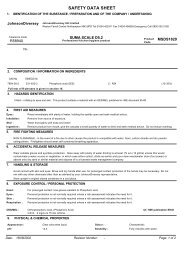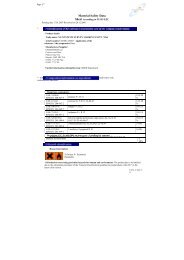CONTENTS 1. Introduction 1.1 Course Outline 1 1.2 Introduction ...
CONTENTS 1. Introduction 1.1 Course Outline 1 1.2 Introduction ...
CONTENTS 1. Introduction 1.1 Course Outline 1 1.2 Introduction ...
Create successful ePaper yourself
Turn your PDF publications into a flip-book with our unique Google optimized e-Paper software.
APPENDIX 1<br />
GLOSSARY OF COMMONLY USED REGULATORY TERMS<br />
All students should make sure that they have and keep for reference a copy of the current edition of<br />
the general University handbook, Essential Information: Undergraduate Student Guide<br />
2005/06. The following glossary should be read with section 6 on Module Choice Information and<br />
section 20 the Modular Framework for Undergraduate <strong>Course</strong>s.<br />
Pass<br />
The overall pass mark for all undergraduate Level modules is 40%. Some modules may also specify<br />
a minimum level of achievement in any or all of the assessed elements within the module<br />
assessment in addition to this. This will be stated in the module syllabus and/or award specific<br />
regulations and students should be notified of these requirements within two weeks of the start of<br />
the module. A module may include both coursework and examination elements of assessment. The<br />
validated <strong>Course</strong> Handbook and the detailed module handbook must specify the mode of<br />
assessment for each module and the weighting of these elements.<br />
Fail<br />
A failure result is one in which a student has achieved an overall mark of less than 40%, or, has<br />
failed to achieve a satisfactory standard in any element of the module as required by the module<br />
specification. (See sections 20.69 - 20.105 of the Framework for Undergraduate <strong>Course</strong>s for details<br />
on action in the case of failure.)<br />
Taken<br />
The term “taken” when used within the undergraduate modular framework means to have<br />
attempted a module, submitted for assessment and achieved an overall mark of at least 30%.<br />
While a mark of 30-39% represents failure in one or more elements of the module, “taken” status<br />
is significant as it results in the award of credits for a module contributing towards an award and<br />
is recorded on a student’s transcript. Furthermore, a student must achieve a “taken” status in a<br />
module to be considered eligible for reassessment (known also as referral or resit).<br />
Modules for which a “taken” result is recorded will remain on a student’s profile and transcript<br />
unless a pass is achieved on reassessment (also known as referral or resit). In cases where a<br />
referral opportunity is offered but the student is not successful at reassessment the “taken”<br />
record will remain on their profile and transcript. In cases where the module is reattempted and a<br />
pass mark achieved the “taken” record will still be retained on a student’s profile to record the<br />
outcome of the first attempt.<br />
While it is in students' best interests to pass all modules counting towards their course,<br />
Undergraduate modular course regulations allow the equivalent of one 15 credit module at each<br />
level to be “taken” with a mark of 30% - 39% to count towards an Honours degree. This means<br />
that up to a maximum 45 credits for modules recorded as “taken” can be counted provided that<br />
no more than 30 “taken” credits are at Credit Levels 5 and 6 combined of which no more than 15<br />
“taken” credits are at Credit Level 6. However students should note that some modules may be<br />
specifically required to be passed under the award specific regulations (as is sometimes the case<br />
with core modules) and may not be “taken”.<br />
Attempt<br />
For the purpose of counting the number of credits attempted for an award (see also 20.131c and<br />
20.139d of the Modular Framework for Undergraduate <strong>Course</strong>s), to have “attempted” a module<br />
means to have registered for a module and not submitted a change of module registration form<br />
indicating withdrawal from the module by the end of the first week of teaching, or not to have<br />
submitted written notice of withdrawing from the course before the meeting of the Assessment<br />
Board considering the results of that module.<br />
In the case of Polylang modules students may change their module registration up to the end of the<br />
second week of the academic session.<br />
DPI_Hbook 92 ©University of Westminster


